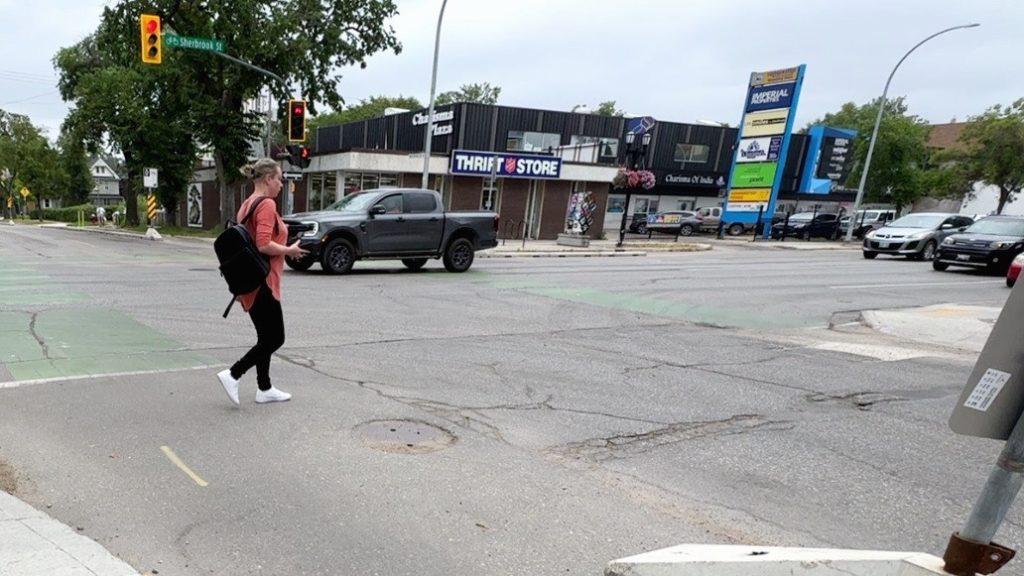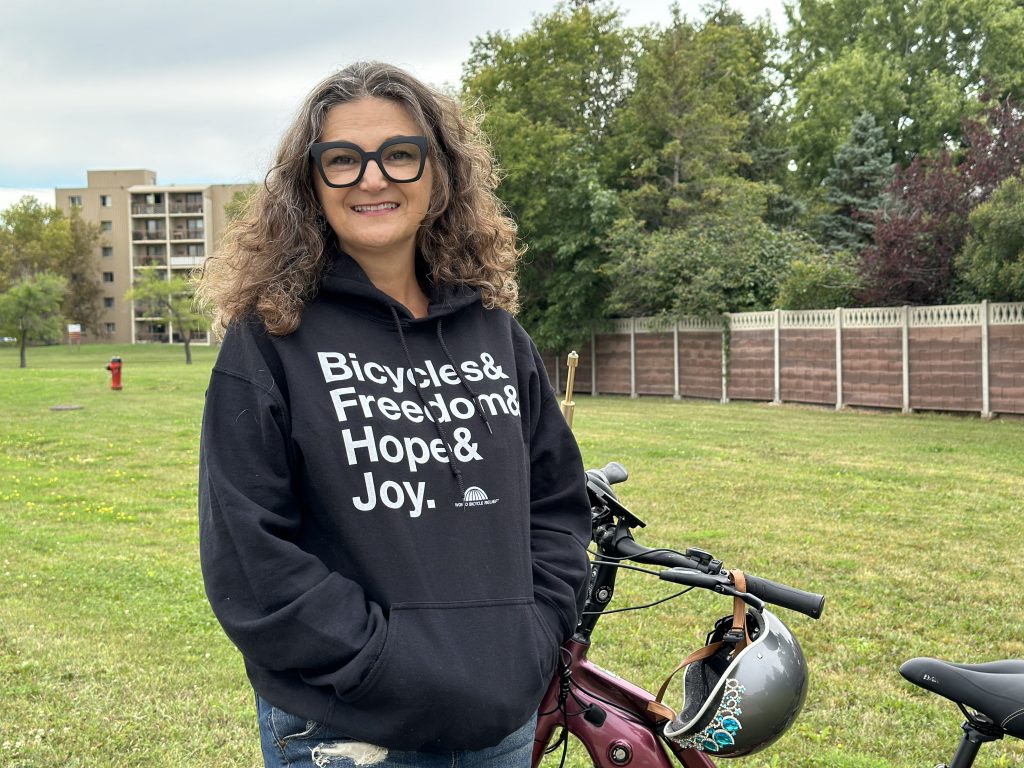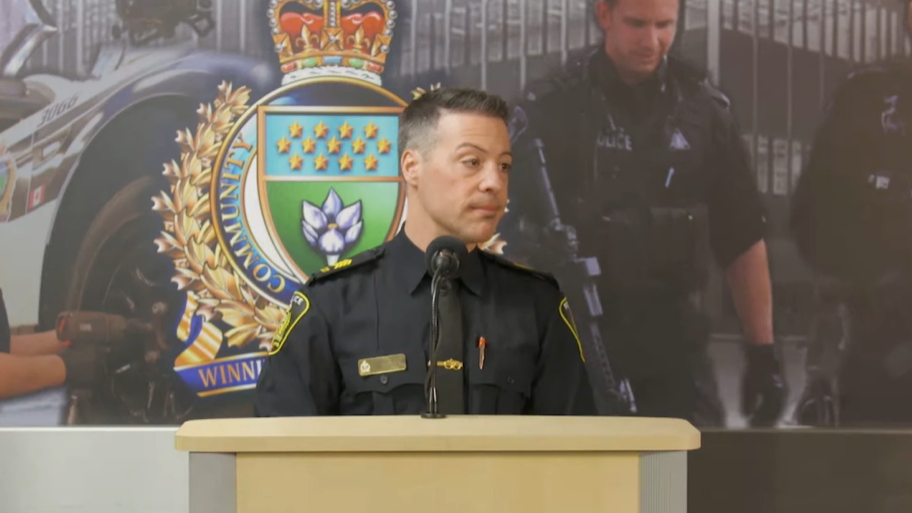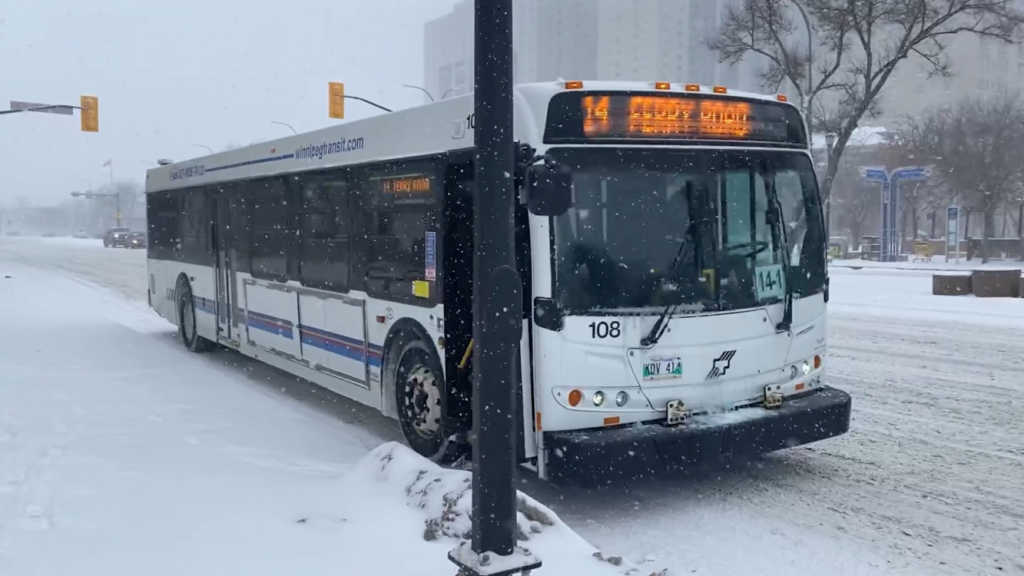Winnipeg’s green commuters promote shift in how we think about traffic, mobility

Posted August 27, 2024 4:01 pm.
Last Updated August 27, 2024 9:02 pm.
Accidents involving green commuters – including cyclists and pedestrians – are on the rise in Winnipeg.
The city is slowly adding more infrastructures like protective curbs for green transportation, but seeing such a complete active transportation network is still years down the road.
“Sometimes I think we’re doing a really good job, we have so many people out, but we still have gaps and this is sometimes where we’ve got very tragic events that happen,” said Janice Lukes, Winnipeg’s deputy mayor and chair of public works.”
So what can Winnipeggers do now to ensure everyone sharing the road is safe? Many are calling for a shift in the way we think about traffic – and other people.
After suffering serious injuries from being hit by a car, Luna Zuniga has been cut off from her community of children and families she used to make art for.
“In all my years, I don’t ever remember a time when I wasn’t making work,” Zuniga said. “Like there wasn’t a day. And now it’s been five months.”
Every day, the Winnipeg artist works on rehabilitating her body and her mind so she can get back to her community as quickly as possible.

Zuniga’s drive for community is simply no longer the norm, according to clinical psychologist Jay Greenfeld.
“The person is focused on their needs, their benefits, their interests, their whatever,” Greenfeld said. “And because of that, they place less emphasis on trying to understand what somebody else’s experiences are like, because they’re not as focused on it. They’re not as interested in it.”
Is technology isolating us?
Greenfeld says it may be for many reasons. But perhaps the biggest: technology plays a huge part of our lives, but it also isolates us more.
“Technology is all about self-interest,” he said. “And so now, it just exacerbates the challenge.
“Modify the use of technology and rely on other people. If we can pay a little bit more attention to being more connected to more people and not think that we can solve everything ourselves.
“To get back to that world is to think about the core values that you were raised with.”
RELATED: Winnipeg sees increase in pedestrian, cyclist deaths in 2024
Greenfeld even points to instances where technology has been a direct cause of an accident – not just for its isolating nature.
“You gotta look at why some of these accidents have happened to start with,” he said. “Let’s say some of them have happened because of distracted drivers. So the first question is, ‘why are you on your phone?’
“People often want to avoid that criticism or that identity of, ‘well I was on my phone and I was texting and that’s why that happened but I can’t blame myself because I don’t want to own that responsibility.’”
There is a way forward: the psychologist says the way to overcome this challenge is by re-engaging with the community.

Bike advocate Patty Wiens says a first step in reconnecting with the city and those who live in it is by travelling on two wheels instead of four.
“I’m aware of the person who’s trying to cross the street. I see them better,” Wiens said. “So it makes me more a part of every community that I travel through.”
Wiens, who’s known within bike advocacy circles as the “Bicycle Mayor of Winnipeg,” says being boxed inside the walls of a vehicle can be alienating.
“You are isolated, not only from the sounds that you travel through, but also the community you travel through,” she said. “You’re no longer a part of that community.
“That isolation is making us more selfish. It’s making us more impatient. All of those things transform if you get on a bike. I think that the bike is the answer to so many things.
“What we need to do is maybe open our windows a little bit, maybe slow down, right. Be more aware. Be mindful that the person who is on a bike in front of you is also a human who’s trying to get somewhere.”

Winnipeg’s deputy mayor says increased safety begins with “separated, protected facilities” like an active transportation pathway that’s completely separated or protected from the street.
But Lukes also acknowledges drivers need to modify how they think about their relationship with green commuters.
“You’re in your metal vehicle, right?” she said. “The most vulnerable – and MPI terms them vulnerable road users – are pedestrians and cyclists. It takes you seconds to get a distance. Slow down, be observant, is what I would say because ultimately, the vehicle is the one that can do more damage.”
Not a bike vs. car mentality
Greenfeld and Zuniga are calling for people to think about others as they travel.
“It takes a split second for someone to hit a child or person and that changes that whole person’s life,” Zuniga said.
“We can see there’s a reason why we want to care about more people,” added Greenfeld. “We want to care about their feelings. We want to understand their experiences because we’re engaging with them. If we don’t engage with them and we don’t hear these things and we don’t talk about these things, we don’t even know what matters to other people.”
There doesn’t have to be a car versus bicycle mentality, according to Wiens, who is hoping people try green commuting for short distances.
“I think we need to shift the way that we think about mobility,” she said.
“Don’t get rid of your car. Just maybe don’t use it for every trip, and see how many trips you can do in a week.
“It would reduce the amount of accidents because those who do have to drive, and I’m saying some people really do have to drive for various reasons, then they wouldn’t have so many cars in their way.”








